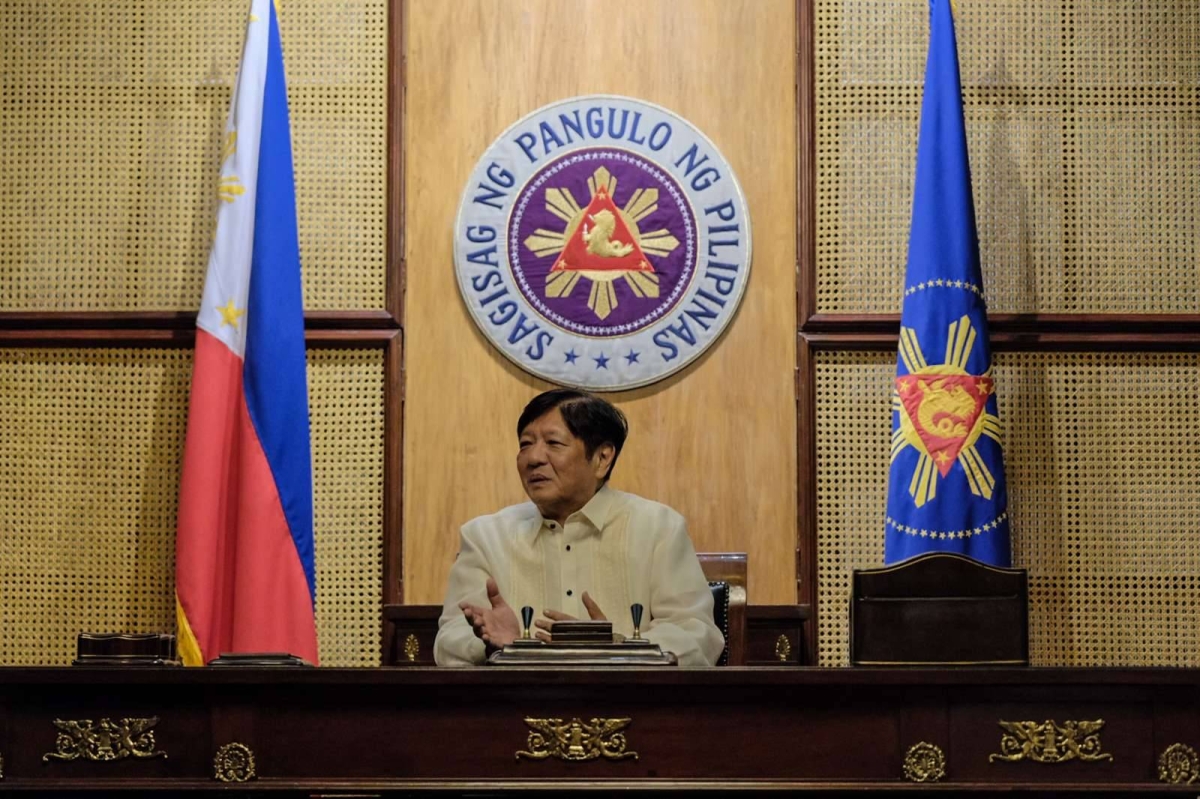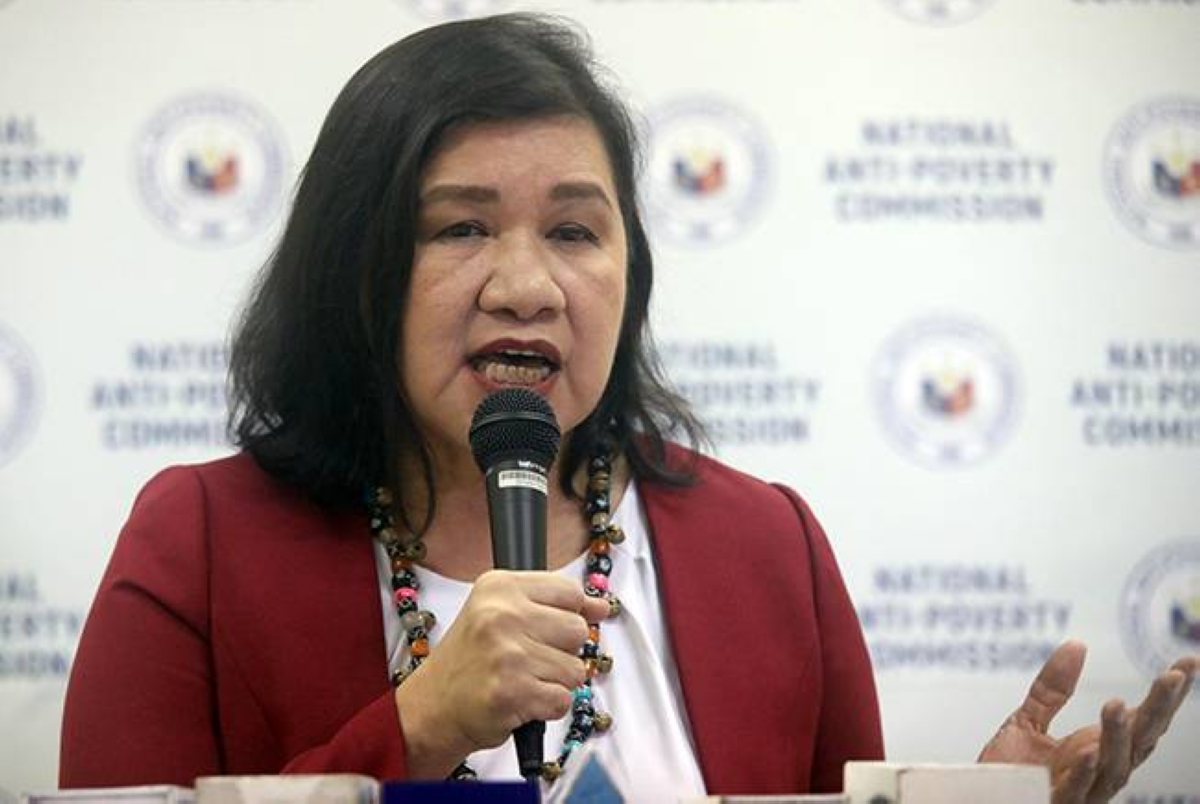The Philippines’ decision to call on the International Court of Justice (ICJ) for a legal opinion on climate change demonstrates the country’s commitment to addressing this global crisis. By seeking an advisory opinion from the ICJ, the Philippines aims to shed light on the obligations of states in relation to climate change and emphasize the importance of protecting the right to life and a clean environment for all.
Climate change is an urgent and complex issue that requires international cooperation and legal frameworks to effectively address its impacts. The Philippines recognizes that the ICJ, as the principal judicial organ of the United Nations, has the expertise and authority to provide guidance on the legal aspects of climate change. This move also aligns with the United Nations General Assembly’s call for an advisory opinion on the obligations of states in relation to climate change.
The Philippines’ statement to the ICJ highlights the fundamental right to life that every individual possesses and emphasizes that this right encompasses the right to a clean, healthy, and sustainable environment. This perspective reflects the growing recognition that climate change poses a direct threat to human life and well-being, as it exacerbates natural disasters, causes displacement, and affects access to basic resources such as food and water.
Furthermore, the Philippines’ decision to engage with the ICJ on this matter is significant because it marks the country’s reentry into the proceedings of the court after a prolonged absence. This demonstrates the Philippines’ renewed commitment to multilateralism and its willingness to utilize international legal mechanisms to address pressing global challenges.
By seeking a legal opinion from the ICJ, the Philippines hopes to contribute to the development of international law in relation to climate change and encourage other nations to take similar actions. The outcome of this process will not only have implications for the Philippines but also for the global community, as it will provide legal clarity and guidance on the obligations of states in combating climate change.
In conclusion, the Philippines’ call on the ICJ for a legal opinion on climate change is a significant step in the global fight against this existential threat. By emphasizing the right to life and a clean environment, the Philippines seeks to highlight the urgency of addressing climate change and the need for international cooperation and legal frameworks. This move also marks the country’s return to the proceedings of the ICJ, underscoring its commitment to multilateralism and its willingness to utilize international legal mechanisms to address pressing global challenges. The outcome of this process will have far-reaching implications for the international community and contribute to the development of international law in relation to climate change. It is imperative that immediate action is taken to mitigate and adapt to the effects of climate change. The scientific consensus is clear: human activities, such as the burning of fossil fuels and deforestation, are the primary drivers of this global crisis. If left unchecked, climate change will continue to exacerbate existing inequalities and pose unprecedented challenges to human societies and ecosystems.
One of the most alarming consequences of climate change is the rise in global temperatures. The Earth’s average temperature has already increased by about 1 degree Celsius since the pre-industrial era, and if current trends continue, it is projected to rise by 3 degrees or more by the end of this century. This rapid warming has far-reaching implications for our planet, including the melting of polar ice caps, sea-level rise, and the disruption of weather patterns.
Extreme weather events, such as hurricanes, droughts, and heatwaves, are becoming more frequent and intense due to climate change. These events not only result in the loss of lives and infrastructure but also have significant economic and social consequences. Vulnerable communities, particularly those in low-lying coastal areas or regions already experiencing water scarcity, are disproportionately affected by these extreme events. The recent wildfires in Australia and the United States are stark examples of how climate change can exacerbate the severity and frequency of natural disasters.
Furthermore, climate change is causing the loss of biodiversity at an alarming rate. Rising temperatures and changing precipitation patterns are disrupting ecosystems and threatening the survival of many plant and animal species. Coral reefs, for instance, are particularly vulnerable to the warming and acidification of the oceans, leading to widespread bleaching and the destruction of these vital marine ecosystems. The loss of biodiversity not only diminishes the beauty and richness of our natural world but also compromises the stability and resilience of ecosystems that provide essential services, such as clean air, water, and food.
The urgency to address climate change is not just a matter of environmental preservation; it is also a matter of social justice and human rights. The impacts of climate change disproportionately affect the most vulnerable populations, including the poor, marginalized communities, and future generations. These communities often lack the resources and infrastructure to adapt to changing conditions, making them more susceptible to the adverse effects of climate change. Moreover, climate change exacerbates existing inequalities, as those who have contributed the least to greenhouse gas emissions suffer the most from its consequences.
To effectively address climate change, a comprehensive and coordinated approach is needed. This includes transitioning to renewable sources of energy, promoting energy efficiency, and implementing sustainable land-use practices. It also requires international cooperation and commitment to reduce greenhouse gas emissions and support vulnerable communities in adapting to the changing climate. Governments, businesses, and individuals all have a role to play in this collective effort to secure a sustainable future for our planet.
In conclusion, the urgency of addressing climate change cannot be overstated. The impacts of climate change are already being felt globally, and if left unaddressed, they will have severe consequences for both present and future generations. It is crucial that we take immediate action to mitigate greenhouse gas emissions, adapt to changing conditions, and protect vulnerable communities. The time to act is now, for the sake of our planet and all its inhabitants. The ICJ, also known as the International Court of Justice, is the principal judicial organ of the United Nations. Its role is to settle legal disputes between states and to provide advisory opinions on legal questions referred to it by authorized UN organs and specialized agencies. In the context of climate change, seeking an advisory opinion from the ICJ demonstrates a commitment to finding legal solutions to the global challenge.
The resolution adopted by the UNGA highlights the importance of collective action in protecting the climate system. It recognizes that climate change is not a problem that any single country can solve on its own. Instead, it requires a global effort that involves all nations working together towards a common goal.
Vanuatu and the core group of like-minded countries that initiated this resolution understand the urgency of the situation. They have witnessed firsthand the devastating effects of climate change, from rising sea levels to extreme weather events. By taking the lead in calling for an advisory opinion from the ICJ, they are sending a powerful message to the international community that immediate action is necessary.
The Philippines’ decision to actively contribute to this global effort is commendable. As a country vulnerable to the impacts of climate change, it understands the need for swift and decisive action. By seeking a legal opinion from the ICJ, the Philippines is not only demonstrating its commitment to protecting its own interests but also to upholding the principles of international law.
The advisory opinion from the ICJ will provide valuable guidance on the obligations of states concerning climate change. It will help clarify the legal responsibilities of nations in reducing greenhouse gas emissions, adapting to the impacts of climate change, and providing support to vulnerable countries. This clarity will be essential in holding countries accountable for their actions and ensuring that they fulfill their obligations under international law.
Moreover, the ICJ’s advisory opinion will carry significant weight in international discourse on climate change. It will serve as a reference point for policymakers, scientists, and activists working towards a sustainable future. It will provide a legal basis for further action and encourage countries to strengthen their climate commitments.
In conclusion, the UNGA’s resolution requesting an advisory opinion from the ICJ is a crucial step in the global effort to protect the climate system. It reflects the growing recognition among nations that urgent action is needed to address climate change. The Philippines’ decision to actively contribute to this effort demonstrates its commitment to finding legal solutions to the challenges posed by climate change. The advisory opinion from the ICJ will provide valuable guidance on the obligations of states and help hold countries accountable for their actions. It will serve as a reference point for further action and encourage countries to strengthen their climate commitments. The Philippines’ participation in the advisory opinion proceedings at the International Court of Justice (ICJ) carries immense significance on multiple fronts. Firstly, as a country that is particularly vulnerable to the impacts of climate change, the Philippines’ involvement underscores the urgency and seriousness of the issue at hand. The nation has been grappling with the devastating consequences of extreme weather events, such as frequent and severe typhoons, rising sea levels, and coastal erosion. These firsthand experiences have made the Philippines acutely aware of the need for immediate action to mitigate and adapt to climate change.
Furthermore, by bringing the issue of climate change to the ICJ, the Philippines is not only advocating for its own interests but also acting as a representative for all nations facing similar challenges. The adverse effects of climate change do not respect national borders; they are a global concern that requires collective action. The Philippines’ decision to seek the ICJ’s opinion on the matter demonstrates its commitment to addressing this global crisis and its willingness to take a leadership role in advocating for environmental justice.
Moreover, the Philippines’ participation in the advisory opinion proceedings reflects its dedication to ensuring the well-being of its citizens and the global community. By seeking legal recourse at the ICJ, the country is actively pursuing avenues to hold responsible parties accountable for their contributions to climate change. This sends a powerful message that the Philippines is committed to seeking justice for its people and future generations who will bear the brunt of the environmental consequences if decisive action is not taken.
In conclusion, the Philippines’ participation in the advisory opinion proceedings at the ICJ holds immense significance. It highlights the country’s vulnerability to climate change, its commitment to advocating for the interests of all nations, and its dedication to promoting environmental justice. By bringing the issue of climate change to an international legal platform, the Philippines is taking a proactive stance in addressing this global crisis and ensuring a sustainable future for its citizens and the world at large.
Climate Change as a Human Rights Issue
The Philippines’ call for a legal opinion on climate change within the context of the fundamental right to life is a powerful argument. It recognizes that climate change is not just an environmental issue but also a human rights issue.
The right to a clean, healthy, and sustainable environment is essential for the enjoyment of all other human rights. Without a stable climate system, the ability of individuals and communities to thrive and prosper is severely compromised. By framing climate change as a human rights issue, the Philippines is highlighting the moral imperative to take action.
Climate change affects the most vulnerable populations disproportionately, exacerbating existing inequalities and injustices. Developing countries, like the Philippines, are often the hardest hit by the impacts of climate change, despite contributing the least to its causes. These countries face increased risks of extreme weather events, such as hurricanes, droughts, and floods, which result in the loss of lives, livelihoods, and infrastructure.
Furthermore, climate change amplifies existing social and economic disparities. Marginalized communities, including indigenous peoples, women, and children, are particularly vulnerable to the adverse effects of climate change. They often lack the resources and capacity to adapt to changing conditions, leaving them more exposed to the risks and impacts.
The Philippines’ call for a legal opinion on climate change as a human rights issue is a significant step towards holding governments and corporations accountable for their actions or inactions that contribute to climate change. It emphasizes the need for international cooperation and collective responsibility in addressing this global crisis.
Recognizing climate change as a human rights issue also opens up avenues for affected individuals and communities to seek justice and reparations. It provides a legal framework for holding polluters accountable and demanding compensation for the loss and damage caused by climate change.
Moreover, framing climate change as a human rights issue strengthens the case for ambitious climate action. It emphasizes the urgency of reducing greenhouse gas emissions, transitioning to renewable energy sources, and implementing adaptation measures to protect vulnerable communities.
In conclusion, the Philippines’ call for a legal opinion on climate change as a human rights issue is a significant development in the global discourse on climate change. It highlights the interconnectedness of environmental degradation and human rights, underscoring the need for a holistic and rights-based approach to addressing climate change. By recognizing the moral imperative to act and demanding accountability, the Philippines is playing a crucial role in driving international efforts to mitigate and adapt to the impacts of climate change. The implications of the Philippines’ call for a legal opinion on climate change extend beyond the immediate case at hand. If the ICJ were to provide a legal opinion on climate change, it would have far-reaching consequences for international law and governance.
Firstly, such an opinion would clarify the obligations of states concerning climate change. Currently, there is no universally agreed-upon legal framework that governs the actions of states in relation to climate change. While international agreements like the Paris Agreement exist, they are not legally binding and lack enforcement mechanisms. A legal opinion from the ICJ would provide much-needed clarity on the legal obligations of states to mitigate and adapt to climate change.
Moreover, the ICJ’s opinion would have the potential to shape international law and policy in this area. It would serve as a precedent for future cases and could influence the development of new international agreements or the amendment of existing ones. Additionally, it could provide guidance on issues such as liability and compensation for climate-related damages, which are currently contentious and unresolved.
The Philippines’ participation in the advisory opinion proceedings also sets an important precedent for other countries. By taking a proactive stance and seeking legal means to address climate change, the Philippines is sending a strong message to the international community. It emphasizes the urgency of the issue and highlights the need for international cooperation in finding solutions.
Furthermore, the Philippines’ call for a legal opinion demonstrates the importance of international institutions in addressing global challenges. Climate change is a complex issue that requires collective action and cooperation at the international level. By involving the ICJ, the Philippines recognizes the role that international institutions can play in providing guidance and resolving disputes.
In conclusion, the Philippines’ call for a legal opinion on climate change has significant implications for international law and governance. It has the potential to clarify the obligations of states, shape international law and policy, and encourage other countries to take a proactive stance in addressing climate change. Additionally, it underscores the importance of international institutions in finding solutions to global challenges.
Source: The Manila Times





